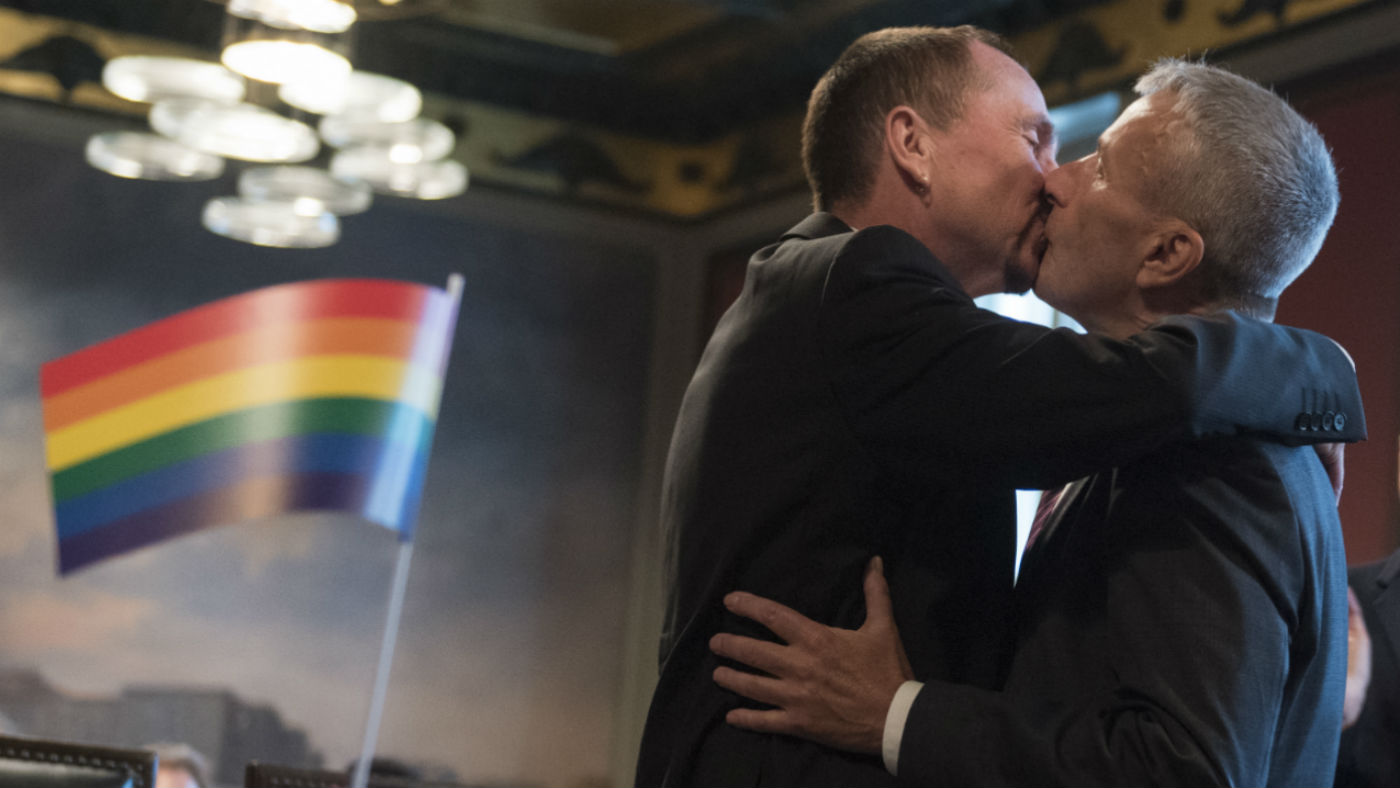First gay couples tie the knot in Germany
Same-sex marriage became legal on Sunday - and registry offices broke with tradition to open their doors

A free daily email with the biggest news stories of the day – and the best features from TheWeek.com
You are now subscribed
Your newsletter sign-up was successful
Germany has witnessed its first ever same-sex marriages, after new legislation came into effect yesterday.
Registry offices across the country broke with tradition by opening their doors on a Sunday in order to allow gay couples to take their vows as soon as the new legislation came into effect.
Karl Kreile, 59, and Bodo Mende, 62, were the first same-sex couple to tie the knot, almost four decades after they first met.
The Week
Escape your echo chamber. Get the facts behind the news, plus analysis from multiple perspectives.

Sign up for The Week's Free Newsletters
From our morning news briefing to a weekly Good News Newsletter, get the best of The Week delivered directly to your inbox.
From our morning news briefing to a weekly Good News Newsletter, get the best of The Week delivered directly to your inbox.
In front of 60 guests and almost as many journalists, Kreile and Mende exchanged their vows in the “Golden Room” of their local town hall, in the Schoeneberg district of Berlin.
The pair, both civil servants, have been together since 1979.
Kreile and Mende are used to blazing a trail - they first tried to obtain a marriage licence in 1992 and were among the wave of first couples to register their union when Germany introduced same-sex civil partnerships in 2002.
“We had a huge party 15 years ago that can’t be topped,” Kreile told AP reporters before the ceremony. However, “the transition to the term ‘marriage’ shows that the German state recognizes us as real equals”.
A free daily email with the biggest news stories of the day – and the best features from TheWeek.com
He added that being the first same-sex couple to wed under equal marriage laws was an “incredible honour”.
Green party politician Anja Kofbinger tweeted a picture of the first female gay couple in Berlin to take advantage of marriage equality, whom she identified as Daniela and Gerlinde.
Another Green party politician was among those exchanging their vows yesterday. Volker Beck, a long-time activist for gay rights, tied the knot with his partner, Adrian Petkov, The New York Times reports.
Aside from the symbolic victory for equality, “getting married will give gay couples the same tax advantages and adoption rights as heterosexual couples”, says the BBC.
Chancellor Angela Merkel surprised many earlier this year when she indicated a softening of her longstanding opposition to gay marriage, saying that she would allow her MPs a free vote on the issue.
Within days, a vote was organised and the German parliament approved same-sex marriage by 393 to 226, despite the chancellor herself and most of her centre-right CDU party voting against the legislation.
Weeks later, Malta followed suit, becoming the 15th European country of 23 nations around the world to introduce equal marriage.
-
 The ‘ravenous’ demand for Cornish minerals
The ‘ravenous’ demand for Cornish mineralsUnder the Radar Growing need for critical minerals to power tech has intensified ‘appetite’ for lithium, which could be a ‘huge boon’ for local economy
-
 Why are election experts taking Trump’s midterm threats seriously?
Why are election experts taking Trump’s midterm threats seriously?IN THE SPOTLIGHT As the president muses about polling place deployments and a centralized electoral system aimed at one-party control, lawmakers are taking this administration at its word
-
 ‘Restaurateurs have become millionaires’
‘Restaurateurs have become millionaires’Instant Opinion Opinion, comment and editorials of the day
-
 Epstein files topple law CEO, roil UK government
Epstein files topple law CEO, roil UK governmentSpeed Read Peter Mandelson, Britain’s former ambassador to the US, is caught up in the scandal
-
 Iran and US prepare to meet after skirmishes
Iran and US prepare to meet after skirmishesSpeed Read The incident comes amid heightened tensions in the Middle East
-
 Israel retrieves final hostage’s body from Gaza
Israel retrieves final hostage’s body from GazaSpeed Read The 24-year-old police officer was killed during the initial Hamas attack
-
 China’s Xi targets top general in growing purge
China’s Xi targets top general in growing purgeSpeed Read Zhang Youxia is being investigated over ‘grave violations’ of the law
-
 Panama and Canada are negotiating over a crucial copper mine
Panama and Canada are negotiating over a crucial copper mineIn the Spotlight Panama is set to make a final decision on the mine this summer
-
 Why Greenland’s natural resources are nearly impossible to mine
Why Greenland’s natural resources are nearly impossible to mineThe Explainer The country’s natural landscape makes the task extremely difficult
-
 Iran cuts internet as protests escalate
Iran cuts internet as protests escalateSpeed Reada Government buildings across the country have been set on fire
-
 US nabs ‘shadow’ tanker claimed by Russia
US nabs ‘shadow’ tanker claimed by RussiaSpeed Read The ship was one of two vessels seized by the US military